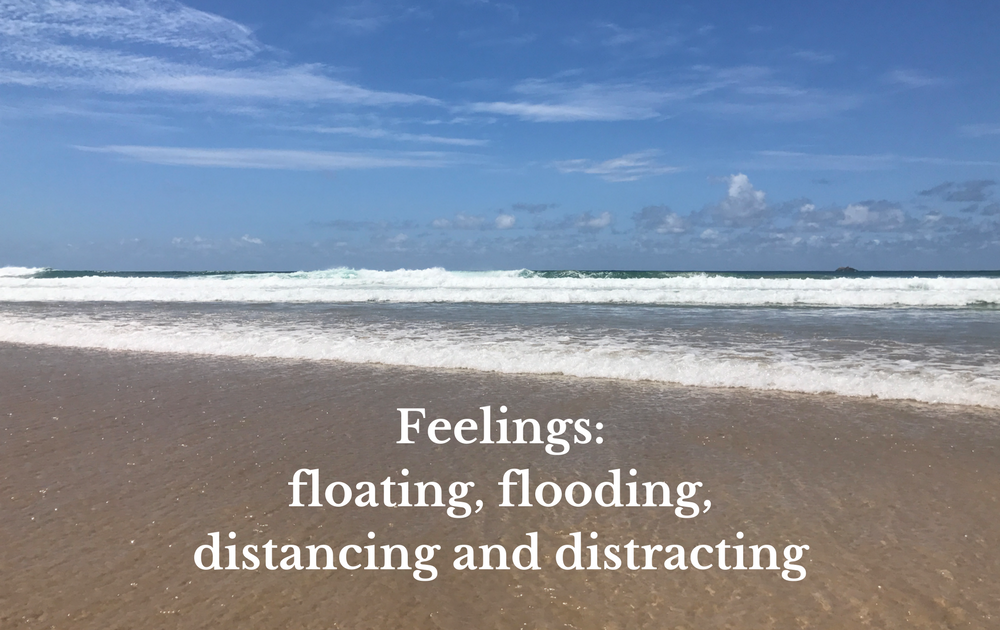I was doing a FB Live on my Marion Rose, Ph.D., Mothering Mentor page last night, and I came up with a concise (ish) way of thinking about feelings – of our babies, children and ourselves.
If any of us are experiencing feelings like overwhelm, frustration, loss, sadness or fear, we can:
~ Distract;
~ Distance;
~ Be present.
And we can be:
~ Faraway from feelings;
~ Flooded by feelings;
~ Floating in feelings.
For example, say if a baby or toddler cries, and they have recently been fed, and aren’t in physical pain, and all their needs are met;
We might try to distract her from her feelings, by feeding her or changing position, or distracting her with a song or a story or with jiggling or rocking, or showing her toys, or we might give her a dummy or a toy or encourage her to suck her thumb.
We might try to distance ourselves from her and distance herself from her feelings, by putting her in a stroller or pram or pushchair and put a cloth over the top, and rock her or take her for a walk.
Or we might be present with her, either taking her in our arms, if she is a baby, or being right there with her if she is a child, and listening to those feelings, being fully present in our body, offering eye contact, and telling her, “I’m here. I’m listening. I love you.”
What can happen when we repeatedly do one of those things?
If we repeatedly distract her from her feelings, she might end upfaraway from her feelings.
If we repeatedly distance ourselves from her when she is upset, she might end up flooded by her feelings.
And if we repeatedly stay present with her when she has painful feelings to express, she can float in her feelings.
The paradox is, when we stay compassionately present with an uncomfortable feeling, we can float in it and it is free to move and flow and leave.
But if we distract or distance, that feeling stays in the body, and accumulates, and leads to agitation.
Those feelings remain in the body and show up as things like agitation, avoiding eye contact, tense muscles, moving around a lot, taking a long time to go to sleep, waking up frequently, not being able to concentrate or cooperate or be present and aware.
The same is the case for us as adults.
If we repeatedly distract or distance ourselves from painful feelings, we are likely to be either faraway or flooded by feelings.
And if we are able to stay present with feelings, then we can float in them, and they are then free to move and leave.
I wonder if this resonates with you?
If you want to learn more about Aware Parenting, I have an in-depth free course that I made last year.
Its available as an ebook or as 5 hours of audios or videos.
I also have the Sound Sleep and Secure Attachment with Aware Parenting Course.
And you might be interested in my Aware Parenting Virtual Village, which consists of not only regular small audios straight to your inbox, but also a lovely supportive FB group.
And I’m going to be doing more FB Lives on my business page if you want to watch.
And if you’re not on my main Marion Rose list and would like to receive emails from me more regularly, CLICK HERE.
Lots of love,
Marion xxx
